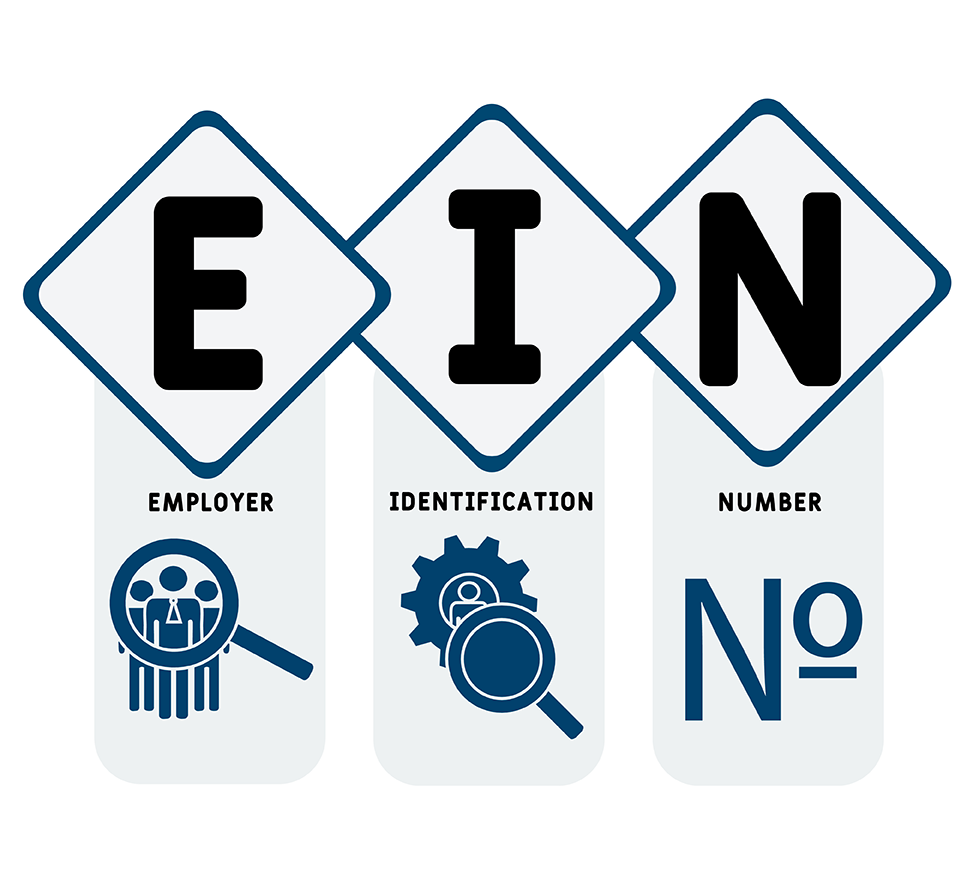
Estimated reading time: 5 minutes
An employer identification number (EIN) is a unique identifier, which is assigned to every business entity. It is also referred to as a Federal Tax Identification Number. Most businesses must have an EIN before they can begin operating.
Made up of nine digits, EINs are formatted like XX-XXXXXXX and are unique to each business. In fact, EINs identify businesses in the same way that Social Security numbers identify individual residents. However, unlike the sensitive nature of Social Security numbers, a business EIN does not need to be kept private.
EINs not only help the Internal Revenue Service distinguish businesses, but allow business owners to report their taxes. In addition, with an EIN, businesses are able to apply for credit cards and open bank accounts.
Simply put, you must have an EIN if you employ others, operate as a corporation or partnership, file tax returns, or withhold taxes. EIN numbers do not expire, and the same number is never assigned to two businesses.
All business types can obtain an EIN, including LLCs, sole proprietorships, non-profits, partnerships, government agencies, S corporations, and estates/trusts. It is important to keep in mind that once a business has an EIN, the business must apply for a new EIN – if they decide to change their ownership structure. It is not necessary on business name changes or location changes.
How Can a Business Obtain an EIN?
There is no fee to apply for an EIN and the process is simple. Businesses can apply via phone, fax, mail, or online application. To apply online, a business must be located in the U.S. or U.S. territories. To apply, applicants can visit the IRS website and complete Form SS-4: Application for Employer Identification Number. The required information includes:
–The name of the responsible party, that individual can be the company’s principal officer, partner, or owner, as well as their individual taxpayer identification number (ITIN).
–The type of entity
–The reasons for applying, such as developing a new business or change of organization
–The start or acquisition date
–The principal business industry
What are the Benefits of Obtaining an EIN?
There are several advantages of having an EIN. The main benefits include being able to function as a business and separating personal income from business income. In addition, every business requires an EIN to hire and pay employees; open bank accounts, get credit, and invest; file business taxes; and register for state taxes..
Sole proprietors who act as independent contractors or freelancers are typically required to provide either a Social Security number or an EIN. There is no question that using an EIN is a better way to protect oneself from identity theft, whether you’re self-employed or own a small business.
Which Specific Business Entities Require an EIN?
Most business entities require an employer identification number, including those that have employees, operate as corporations or partnerships, file certain tax returns, or withhold income taxes on income other than wages. However, because each type of business entity has different requirements regarding an EIN, it is important to understand the numerous requirements listed below:
Corporations need their own EIN because a corporation is legally considered to be a separate entity. In addition, if the name of a business changes, if the business becomes a subsidiary of another corporation, or if the structure changes to a sole proprietorship or partnership, the corporation may need to acquire a new EIN.
Partnerships require EINs in most cases. Acquiring a new EIN is necessary in the following scenarios: if one partner develops a sole proprietorship, if the partnership incorporates, or if a new partnership is formed.
Limited Liability Companies (LLCs) need EINs unless the business is a single-member LLC. However, an EIN is required when the business has one or more employees or the business is declaring bankruptcy.
Sole proprietorships typically do not need EINs for their business.
Nonprofit organizations are required to obtain an EIN before applying for 501(c)(3) tax-exempt status.
Trusts may need to apply for EINs for certain types of trusts. Irrevocable trusts, including testamentary trusts, need their own EINs because they are separate, legal entities once created and funded.
Estates may need an EIN. Typically, an EIN is required in situations where assets must be probated before being distributed. The individual using the EIN for an estate is considered a fiduciary, such as a personal representative or executor appointed by the courts to administer and distribute the deceased person’s estate.
Employee benefit plans, including health and retirement plans, need their own EINs.
Personal service corporations may need an EIN for tax purposes. If a business performs personal services, such as consulting, engineering, accounting, health, or law, your business may be considered a personal service corporation, and an EIN is important for tax purposes.
Household employers (employing someone to help in your home) require an EIN. In this particular scenario, an EIN is needed to report payroll tax withholding.
Having an EIN is crucial to your business operations. We’re here to ensure your EIN application is filed correctly, so you can keep moving forward. When you’re ready to start your business, contact our specialists or form your free LLC online today!